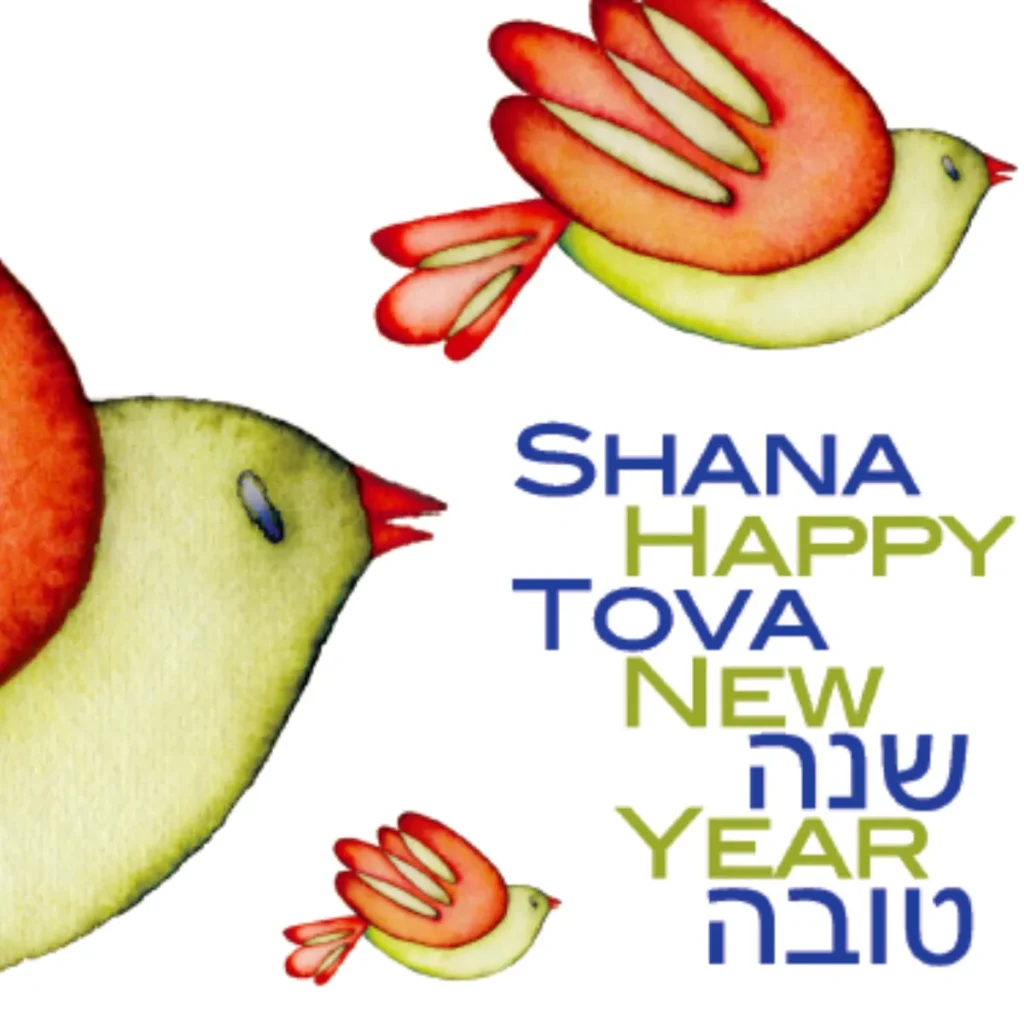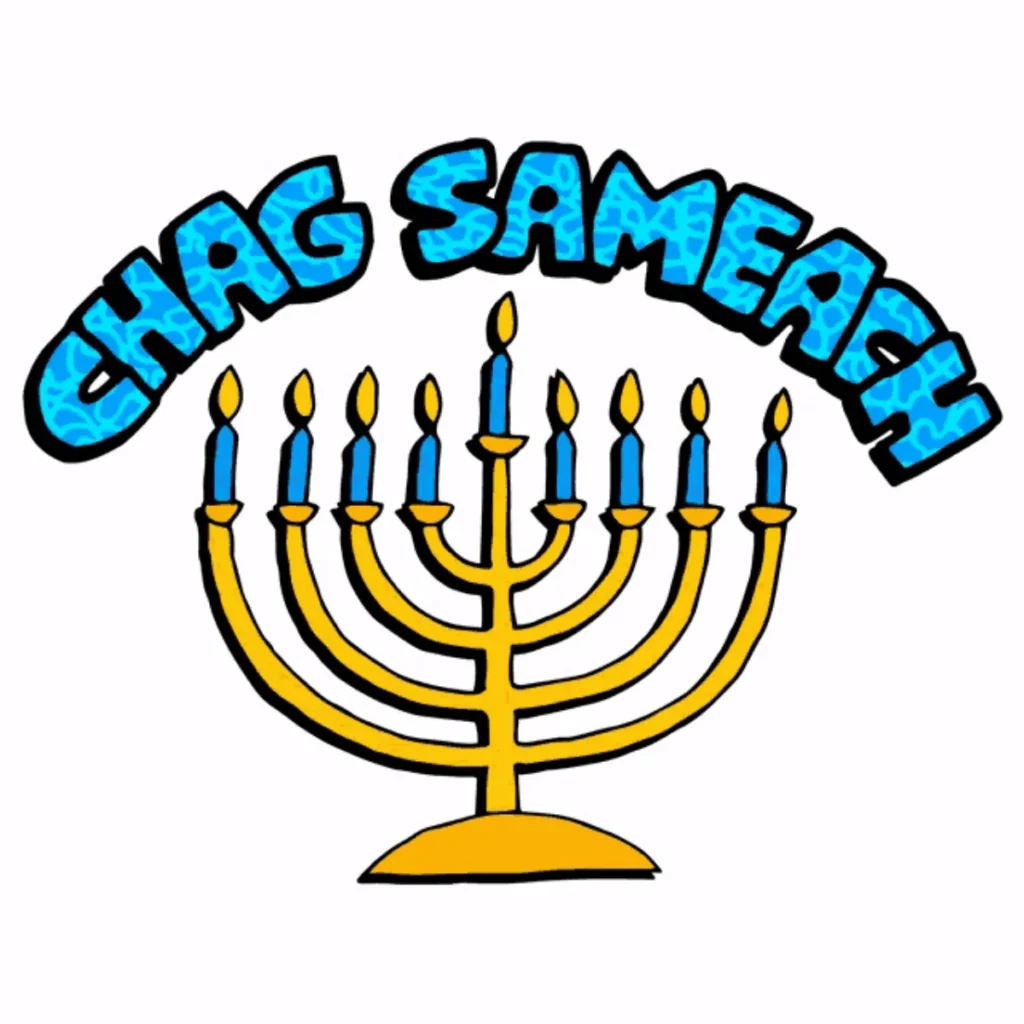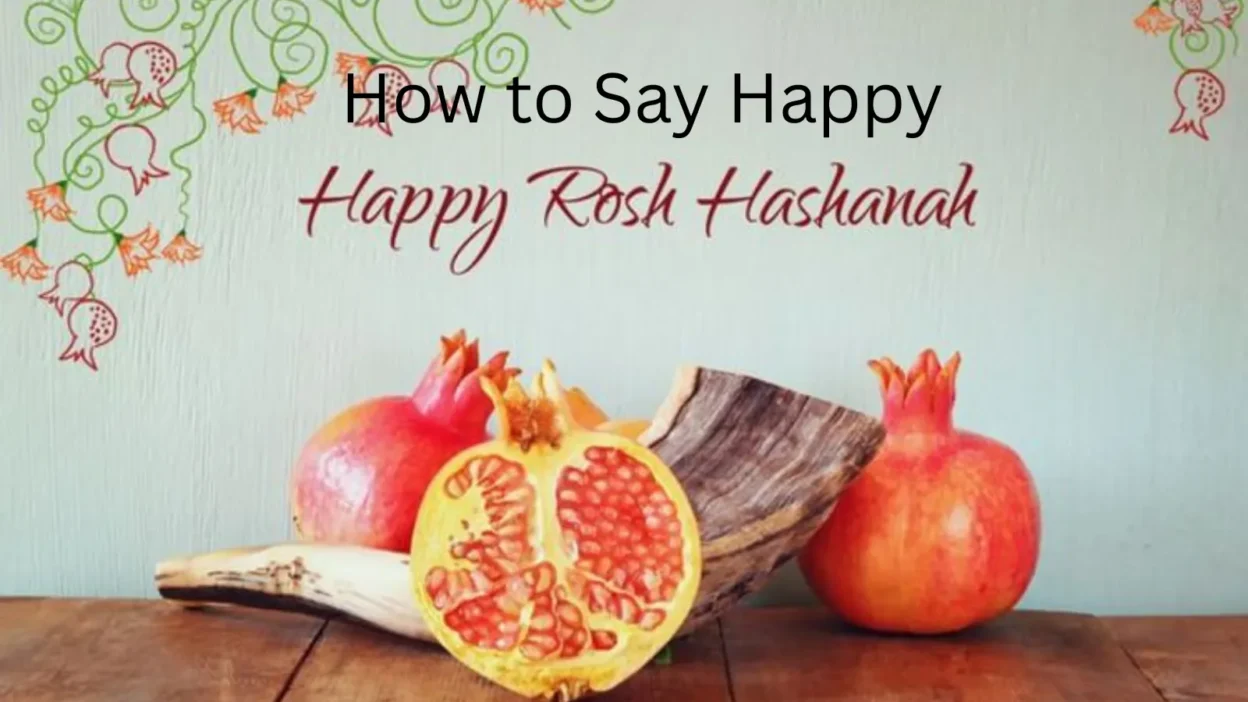Learning how to say Happy Rosh Hashanah will help you share warm wishes during the Jewish New Year and connect meaningfully with friends, family, and the Jewish community.
Rosh Hashanah marks the beginning of the High Holy Days, a time for reflection, renewal, and celebration. From traditional Hebrew greetings like Shanah Tovah to simple English expressions, there are many ways to offer heartfelt wishes for a sweet and prosperous year ahead.
In this guide, you’ll discover the most common and meaningful ways for how to say Happy Rosh Hashanah, along with examples so you can greet confidently and respectfully.
Happy Rosh Hashanah
Let’s explore 15 ways to say Happy Rosh Hashanah, with examples and the meaning behind each one!
1. Shanah Tovah
Origin:
Hebrew for “Good Year” (שָׁנָה טוֹבָה). This is the most common and traditional way to wish someone a Happy Rosh Hashanah.
Example:
👤 User A: Shanah Tovah, Rachel! Wishing you a sweet new year.
👤 User B: Shanah Tovah! Same to you and your family.
Use:
Formal or casual; appropriate in any setting.
2. Shanah Tovah U’Metukah

Origin:
A longer version meaning “A good and sweet year.” It emphasizes both goodness and sweetness — a key theme of the holiday.
Example:
👤 User A: Shanah Tovah U’Metukah, David!
👤 User B: Thank you! May your year be sweet as honey too.
Use:
Warm, meaningful; perfect for cards or close relationships.
3. Happy Rosh Hashanah
Origin:
An English version widely used, especially in multicultural or interfaith contexts.
Example:
👤 User A: Happy Rosh Hashanah, Sarah!
👤 User B: Thanks! Happy New Year to you too!
Use:
Friendly and inclusive; great for coworkers or non-Hebrew speakers.
4. Have a Sweet New Year

Origin:
Inspired by the traditional foods of Rosh Hashanah (like apples and honey), this phrase carries a loving tone.
Example:
👤 User A: Wishing you a sweet new year, Ethan!
👤 User B: That’s so kind — same to you!
Use:
Warm and personal; perfect in cards or texts.
5. L’Shanah Tovah Tikatevu
Origin:
A traditional Hebrew blessing meaning “May you be inscribed [in the Book of Life] for a good year.”
Example:
👤 User A: L’Shanah Tovah Tikatevu!
👤 User B: And may you be inscribed as well!
Use:
Religious or traditional contexts.
6. Wishing You a Joyful New Year
Origin:
A simple English phrase that conveys happiness and respect for the holiday.
Example:
👤 User A: Wishing you a joyful New Year, Leah!
👤 User B: Thank you! That means a lot.
Use:
Neutral and respectful; good for work or multicultural settings.
7. Chag Sameach

Origin:
Hebrew for “Happy Holiday” (חַג שָׂמֵחַ). It’s used during many Jewish holidays, including Rosh Hashanah.
Example:
👤 User A: Chag Sameach! Enjoy the celebrations.
👤 User B: Thank you! You too!
Use:
General Jewish holiday greeting; versatile.
8. Blessings for the New Year
Origin:
A heartfelt English expression often used in cards or religious settings.
Example:
👤 User A: Sending you blessings for the New Year.
👤 User B: I truly appreciate that. Blessings to you too!
Use:
Formal and spiritual.
9. Wishing You Peace and Prosperity
Origin:
Popular in interfaith or business circles, this phrase reflects the themes of Rosh Hashanah without religious language.
Example:
👤 User A: Wishing you peace and prosperity this Rosh Hashanah.
👤 User B: Thank you! That’s so thoughtful.
Use:
Professional or interfaith communication.
10. A Healthy and Happy New Year

Origin:
Reflects the common Jewish toast to “health” (like “L’chaim!”). Especially relevant in modern times.
Example:
👤 User A: Wishing you a healthy and happy New Year.
👤 User B: Amen to that! Thanks.
Use:
Friendly and heartfelt.
11. Hope Your Year is Filled with Sweetness
Origin:
Tied to the apple-and-honey tradition, symbolizing a year full of kindness and joy.
Example:
👤 User A: Hope your year is filled with sweetness, Eliana.
👤 User B: Aw, thank you — that’s beautiful!
Use:
Sentimental and personal.
12. Wishing You Renewal and Reflection
Origin:
Rosh Hashanah is not just about celebration—it’s a time for introspection. This phrase acknowledges that.
Example:
👤 User A: Wishing you renewal and reflection this new year.
👤 User B: Thank you. I’m taking time to reset.
Use:
Thoughtful and mature.
13. Have a Blessed Rosh Hashanah
Origin:
A more spiritual tone in English, used in both Jewish and interfaith contexts.
Example:
👤 User A: Have a blessed Rosh Hashanah!
👤 User B: Thank you! Same blessings to you.
Use:
Formal and faith-centered.
14. A Year of Growth and Gratitude
Origin:
This modern greeting focuses on personal development, making it a favorite in educational or self-help communities.
Example:
👤 User A: Here’s to a year of growth and gratitude.
👤 User B: Yes! That’s exactly what I’m aiming for.
Use:
Modern and inspirational.
15. L’Shanah Tovah! May All Your Prayers Be Answered
Origin:
Combines the traditional Hebrew greeting with a heartfelt wish.
Example:
👤 User A: L’Shanah Tovah! May all your prayers be answered this year.
👤 User B: Thank you — what a beautiful blessing.
Use:
Religious, emotional, and sincere.
FAQs:
1. How do you say “Happy Rosh Hashanah” in Hebrew?
You say “Shanah Tovah” (שנה טובה).
2. What does “Shanah Tovah” mean?
It means “Good year” or “Have a good year.”
3. How do you pronounce “Shanah Tovah”?
It’s pronounced sha-NAH toe-VAH.
4. Is “Shanah Tovah” formal or casual?
It can be used in both casual and formal situations.
5. Can I say it to anyone celebrating Rosh Hashanah?
Yes, it’s a friendly and respectful greeting for anyone observing the holiday.
6. What is a longer version of the greeting?
You can say “Shanah Tovah U’Metukah” (שנה טובה ומתוקה), meaning “A good and sweet year.”
7. When do people say “Shanah Tovah”?
People say it before or during Rosh Hashanah.
8. Is there an English way to greet someone?
Yes, you can simply say “Happy Rosh Hashanah!”
9. Can I send this greeting in messages or cards?
Yes, it’s very common and appreciated.
10. Is Rosh Hashanah a happy holiday?
Yes, it’s joyful and meaningful — celebrating the Jewish New Year.
Conclusion:
Mastering how to say Happy Rosh Hashanah allows you to celebrate this important Jewish holiday with warmth, respect, and cultural understanding. Whether you use the traditional Hebrew greeting Shanah Tovah or a heartfelt English wish, your words can bring joy and connection to friends, family, and the community.
By learning these greetings, you honor the traditions of Rosh Hashanah while sharing in the spirit of renewal and hope for the year ahead. Remember — a sincere Happy Rosh Hashanah can make someone’s celebration even more meaningful.

Sophia Mitchell is a passionate content writer known for creating clear, engaging, and informative articles.
She focuses on delivering well-structured content that is easy for readers to understand and trust.
Sophia Mitchell currently contributes quality writing to repliesnest.com, helping readers find accurate answers quickly.



